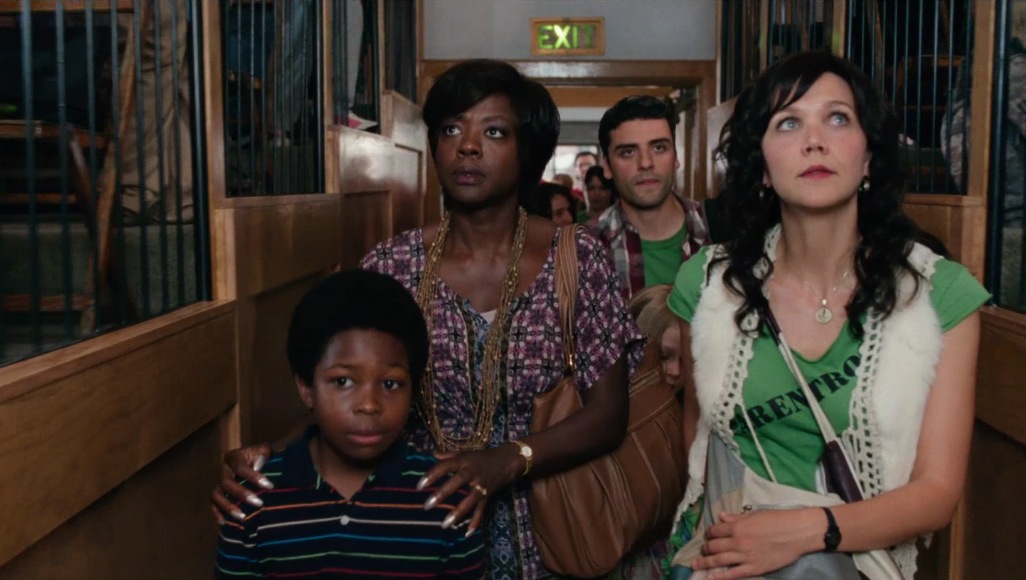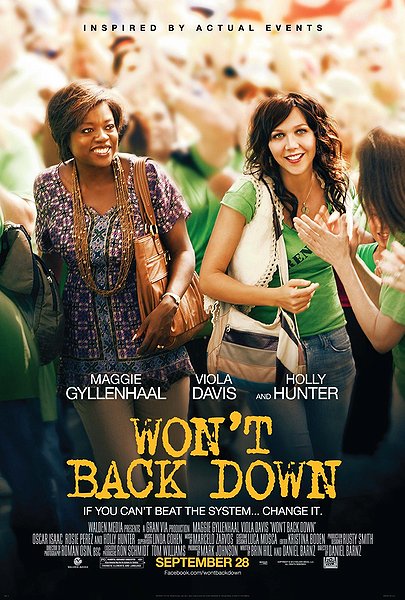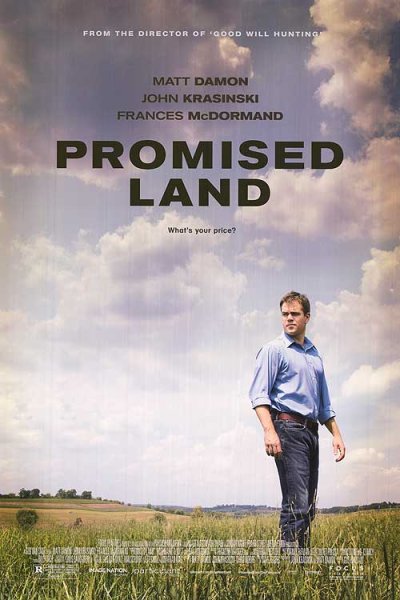
Romance, drama, and - politics? Absolutely! These two movies show people fighting for a cause and finding romance, and they leave us thinking about the issues.
Reviewed by Jan Hardy, Library Specialist. Screenshot from "Won't Back Down" as featured image.
Won’t Back Down (DVD-8253)
Viola Davis, Maggie Gyllenhaal, Holly Hunter (2012)
 (Rated PG) The setting is a failing inner-city elementary school, with tenured teachers who lack the resources or motivation to educate their students. The school administration doesn’t care, and our heroine Jamie, a single working mom (Mggie Gyllenhaal) is forced to advocate for her daughter Malia who has dyslexia. Malia’s classmates laugh at her, and the teacher humiliates her. Of course, we’re outraged.
(Rated PG) The setting is a failing inner-city elementary school, with tenured teachers who lack the resources or motivation to educate their students. The school administration doesn’t care, and our heroine Jamie, a single working mom (Mggie Gyllenhaal) is forced to advocate for her daughter Malia who has dyslexia. Malia’s classmates laugh at her, and the teacher humiliates her. Of course, we’re outraged.
There is one teacher (Viola Davis) who’s trying valiantly to reach her students. She’s struggling to help her son, who has a learning disability, and she’s in a messy, painful separation from her husband. Viola Davis brings all her gravity and depth to the role, so we know she’ll bond with Jamie eventually. Oscar Isaac plays Michael, a teacher who inspires his students with song and dance, and stirs some lust in Jamie as well.
Jamie organizes meetings and protests, takes her complaints to the school board, writes up proposals and petitions, and discovers a way to turn the school into an independent charter. (How she does this while working two jobs is not explained, but it’s the movies.) Gyllenhaal’s spunky energy as an activist plays so well, we’re drawn in, ready to don a green shirt and march with her. Viola Davis also dazzles, and watching her enthusiasm gradually catch fire is marvelous. Michael’s hesitance to join the charter-school movement looks like stubborn reluctance to give up his union benefits - although he does get one scene to explain the necessary protection offered by unions. Holly Hunter, CMU alum, also gets one scene to pay tribute to her parents who organized a textile mill in South Carolina in 1967, “and I know what it cost.” Still, she uses the temptation of a private school scholarship to distract and buy off Jamie.
This movie sparked controversy over its anti-union, pro-charter school views. I was suspicious when the unionized teachers “weren’t allowed” to spend extra time with students. (Really?) NPR dug deeper and found that “Won’t Back Down” received funding from Walden Media, which is owned by Philip Anschutz, an advocate of creationist curricula in schools. So, more than a grain of salt would be advisable when taking in the slanted view of public schools in this fictional Pittsburgh neighborhood.
Local interest includes many references to the Pirates, Penguins and Steelers, and there’s an amusing bit with a box full of sports bobble heads. Somehow the elementary school and the used car lot where Gyllenhaal works both have great views of the city. The Incline, Heinz Field, and the Alcoa Building all make an appearance; a teacher mentions students going to “Pennsylvania State Prison instead of the University of Pittsburgh.” And the Allegheny County Courthouse stands in, rather grandly, for the Western Pa. Board of Education.
Favorite line: a dispirited Marianne Jean-Baptiste says “I live and breathe this bureaucracy. I share your frustration. I read Kafka to make myself feel better.” The end is predictable, but it’s not a bad movie. Just don’t forget that grain of salt.
Promised Land (BRD-179)
Matt Damon, John Krasinski, Hal Holbrook, Frances McDormand (2013)
 (Rated R) From the beginning, I was drawn in by Steve (Matt Damon) and Sue (Frances McDormand) driving through pastoral farm land, bickering about the old, battered stick-shift truck she rented which he couldn’t drive. He marvels at how quickly the scenery changes outside the city; “it looks like Kentucky.” “Two hours outside any city looks like Kentucky,” Sue says.
(Rated R) From the beginning, I was drawn in by Steve (Matt Damon) and Sue (Frances McDormand) driving through pastoral farm land, bickering about the old, battered stick-shift truck she rented which he couldn’t drive. He marvels at how quickly the scenery changes outside the city; “it looks like Kentucky.” “Two hours outside any city looks like Kentucky,” Sue says.
Damon’s likable awkwardness makes him totally believable as Steve, who grew up in a farming community. He’s motivated by how fast his hometown declined after the local Caterpillar plant closed. “I’m not selling natural gas,” he says. “I’m selling the only way they have to get back.” Sue is more practical, aiming for results. They’re both working for Global, a multi-million dollar company that wants them both to “close the town,” leasing the drilling rights to all available properties. This town, Sue says, is the “entry point for the whole state. After that it’s like dominoes.”
Before the dominoes fall, they have to meet with every landowner and the local government to present their pitch. It’s fascinating to watch McDormand inhabit a character; here, she plays to each potential customer, appealing to their hopes for their children, with just the right amount of flirtation with men and straightforward maternal bonding with women. Steve’s pitch is clumsier, and the two are also challenged by an avuncular high school teacher (the always awesome Hal Holbrook) who interrupts their speech: “It’s called fracking,” he says, and tells the townspeople to Google the results: polluted water, ruined land.
The two keep on canvassing, having only moderate success. Alice (Rosemarie DeWitt), a school teacher celebrating her birthday at the local dive, challenges Steve to a drinking game that lands him unconscious on her couch. Though “nothing happened,” we’re assured a hint of romance. Meanwhile, sales are further threatened by the arrival of Dustin, an environmentalist played by John Krasinski. He assimilates even more smoothly, performing a capable rendition of Springsteen at the local dive’s open mike night(compared with Sue’s weak effort), and leaving the bar with Alice.
Global has a strategy for diverting this environmentalist, though, and Steve offers him a cash buyout to leave the town. Dustin uses the money for flyers portraying dead cows and bulletin boards with dire warnings, and continues to speak out against fracking. He presents a little model farm to school children, then shocks them by dumping chemicals on it and setting it on fire. There’s a fascinating plot twist, though, and an ending that somehow satisfies all the characters.
Gus Van Sant’s careful direction, Dave Eggars’ story, and each actor’s low-key contribution make all the difference in this movie that could have been too preachy, but instead settles in like the natural landscape it honors so convincingly.
